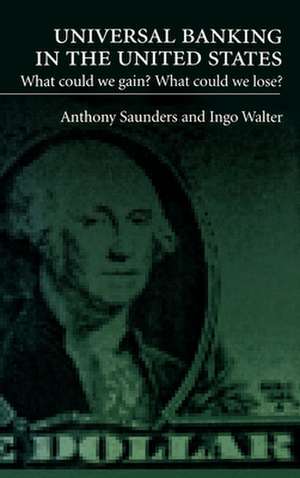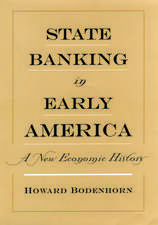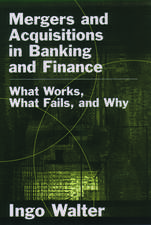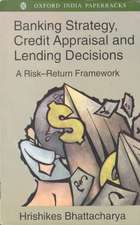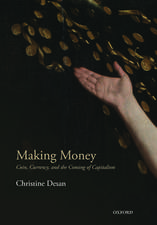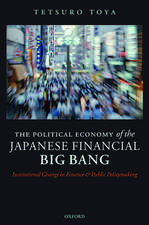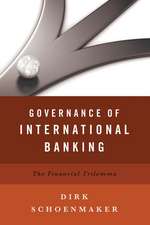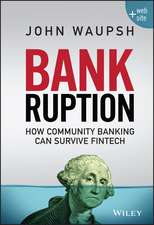Universal Banking in the United States: What Could We Gain? What Could We Lose?
Autor Anthony Saunders, Ingo Walteren Limba Engleză Hardback – 10 feb 1994
Preț: 536.03 lei
Preț vechi: 808.34 lei
-34% Nou
Puncte Express: 804
Preț estimativ în valută:
102.60€ • 106.70$ • 85.98£
102.60€ • 106.70$ • 85.98£
Carte tipărită la comandă
Livrare economică 03-08 martie
Preluare comenzi: 021 569.72.76
Specificații
ISBN-13: 9780195080698
ISBN-10: 0195080696
Pagini: 288
Ilustrații: line figures, tables
Dimensiuni: 161 x 241 x 29 mm
Greutate: 0.63 kg
Ediția:New.
Editura: Oxford University Press
Colecția OUP USA
Locul publicării:New York, United States
ISBN-10: 0195080696
Pagini: 288
Ilustrații: line figures, tables
Dimensiuni: 161 x 241 x 29 mm
Greutate: 0.63 kg
Ediția:New.
Editura: Oxford University Press
Colecția OUP USA
Locul publicării:New York, United States
Recenzii
Universal Banking in the United States is an excellent book that provides a careful, in-depth analysis of the case for and against a shift to universal banking in the US...Quite readable and extremely interesting. It is of interest to a wide audience, including bankers, regulators, and lobbyists, and should be read by every US legislator.
